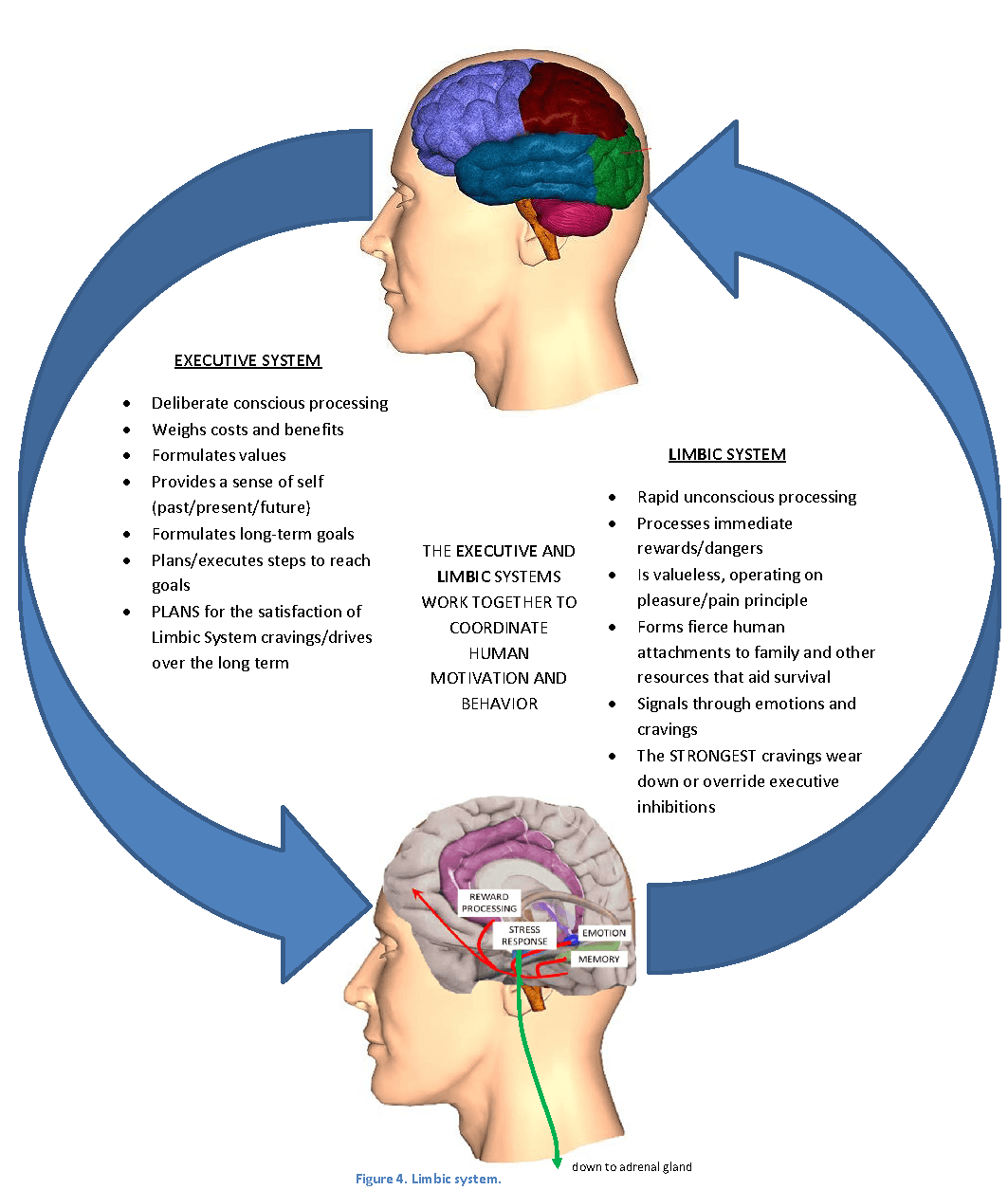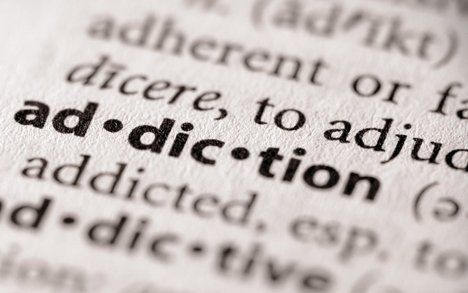Why is Addiction so Powerful?
Understanding the power of addiction so that you can develop the tools to overcome it.
There are two primary brain systems involved in motivational regulation—the executive system and the limbic system. The executive system is the seat of all conscious processing. It plans, reasons, sets goals, and weighs costs and benefits. It uses more stable features of consciousness—e.g. values, principles, and identity—as a way to make key judgments and decisions. Using our executive system, we engage in logical thinking, playing out hypothetical scenarios to determine which path of action will best achieve our desired results with the minimum cost or risk.
The limbic system is evolutionarily older than the executive system and includes areas that regulate our appetites, attachments, emotional responses, memories, and reward salience. Sometimes called the “survival” or “pleasure” center of the brain, the limbic system helps us identify immediate rewards and dangers and respond to them successfully. These responses are more rapid and automatic than the deliberative cognitive processes of the executive system.
One of the primary roles of the executive system is to inhibit limbic system impulses that conflict with our higher level values—e.g. our long-term goals, our relationships, and our sense of self. We override our desire to turn over and go to sleep in the morning because we give deliberate priority to being on time. We inhibit sexual impulses toward people other than our partners in order to cultivate healthy relationships. The regulatory inhibitions of the executive system help us to stabilize our lives and secure the things we want over the long-term. To achieve this stability, we often have to forgo immediate rewards.
Addictive substances and behaviors are precisely those substances and behaviors that are capable of creating a limbic system override of executive functioning such that higher level values are sacrificed to limbic system drives. Imagine that you are caught in the wilderness without food and water. After a couple days when you are fearful of dying from thirst, you come across a pool but there is a sign on front of it that reads “POISON: DO NOT DRINK.” The water looks clean and fresh and as time passes, you are stuck between the choice of dying from thirst or drinking the poisonous water. Eventually most if not all of us will choose to drink from the pool over certain death from thirst. Addiction tricks the brain into believing that alcohol or drugs are necessary for survival. The drive to use becomes as powerful as the drive to find food and water. The executive system’s longer term goals such as maintaining healthy relationships, pursuing educational or professional objectives, or maintaining one’s reputation and legal status are all overridden by the drive to use.



